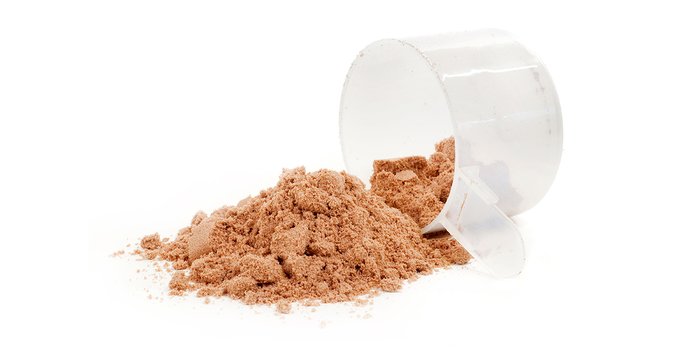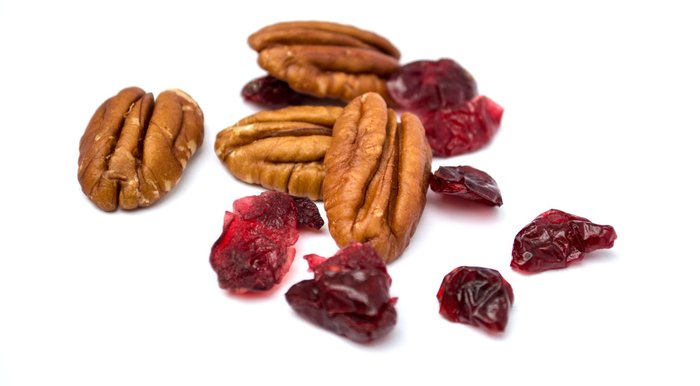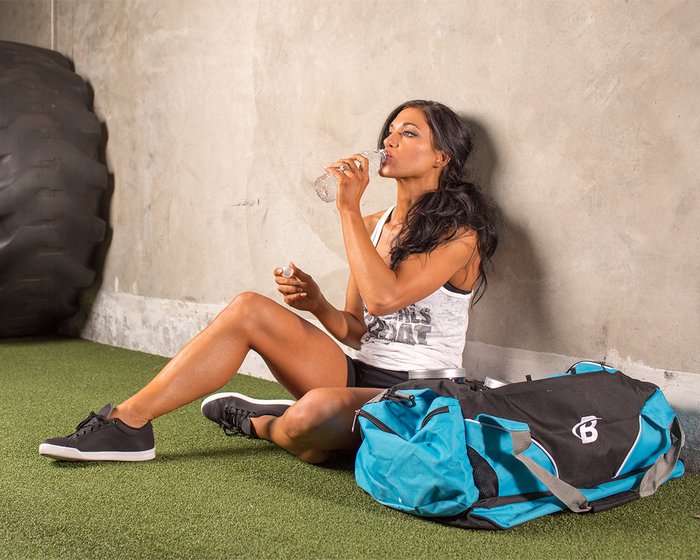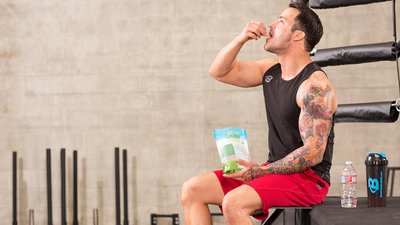After a workout, your muscles are like dry sponges, ready to absorb every nutrient that comes their way. This works out well, because when you eat after working out, there's a lot of blood flowing to carry those nutrients to your muscles.
When you're training once a day, you need to replenish carbohydrate stores and push aminos to your muscles, but you don't have to rush it. Having a post-workout meal within 60 minutes is usually fine when your next workout is 20-24 hours away.[1]
But what if you're pulling two high-intensity workouts in a day? At two a day, your recovery window may be just a few hours. You need to use every minute between workouts to deliver as many carbohydrates and aminos to your muscles as possible.
Here are four ways to help you get those nutrients to your muscles fast.
1. Need Protein Fast? Think Powders
Immediately following your first workout, choose a fast-acting protein like whey to quickly deliver amino acids to your muscles. This will help jump-start the muscle-repair process and ready your muscles to contract for your next workout.

Using a quickly digested protein also keeps you from feeling bloated after your workout. If you go the whole food route, avoid high-fat protein (cheese, eggs, nuts), because the extra fat further slows digestion.
How much: Aim for 25-35 grams of a fast-digesting protein following your workout.
Shop Protein Powders In Our Store!
2. Drink Your Carbs, Then Chow Down
A low-fiber, fast-digesting carbohydrate will refill your carbs supply much more quickly than a high-fiber option. Instead of slogging through a big bowl of oats, consider dextrose, fruit juice, or your favorite sports drink as soon as you finish your last exercise. Wait a bit, then have a whole-food meal that focuses on protein and carbs. Choose low-fiber carbs such as white rice, pasta, and potatoes, rice cakes, fig Newtons, dried fruit, or a low-fiber granola bar (less than 3 grams per bar). This will continue to support your goal of rapid carbohydrate replenishment.
How much: If you have time for more than one meal before your second workout, aim for 0.2-0.4 grams per pound of body weight of a fast-digesting carb source (40-80 grams for a 200-pound person) right after your workout. If your exercise of choice is endurance-based or very high in volume, aim for the upper limit of this recommendation.
If your training resembles a more traditional bodybuilding split or a similar resistance-training workout, aim for the lower end of this recommendations. Eat this same amount every 2 hours for the next 4-6 hours.[1]
If you have time for only one meal, try to get 0.5-0.7 grams per pound of body weight immediately after your workout (100-140 grams for a 200-pound individual).[1] Again, the greater your training volume and energy expenditure, the closer to this upper recommendation your meal should be. Be sure to have protein at this meal, too, because your body can absorb carbs better if they are combined with protein.[2]
What's most important is the amount of carbohydrate you take on board between workouts. Whatever strategy allows you to take in the most carbs is the best method for you.
3. Get Fats That Won't Bloat You
It takes your body a long time to digest fat. If you eat high-fat foods before or after a workout, the nutrients they contain might not reach your muscles fast enough to power your next session. And high-fat foods can make you feel both bloated (because of all the undigested food) and lethargic (because the nutrients aren't yet accessible to your muscles) as you head into the gym.

To be sure, fat does serve as an excellent source of calories and is a great source of nutrients. You just have to be careful when you eat it to maximize recovery and performance.
How much: Your daily fat intake depends on a number of factors. In general, when you're training twice a day, keep your fat intake to a minimum at your post-workout meals and second pre-workout meal so the fats don't slow down carbohydrate replenishment.
4. Even a Little Dehydration Can Mess You Up
You can lose as much as 1-2 liters of sweat per hour when you work out! If you don't rehydrate before your second workout, you're setting yourself up for a cramp-filled, subpar training session. Studies show being dehydrated by as little as 2.5 percent (5 pounds for a 200-pound person) can significantly reduce your strength and power.[3,4]

How much: Weigh yourself before and after each workout. For every pound you lose during your workout, drink 24 ounces of fluids before your next workout. To help replenish electrolytes (particularly sodium and potassium), try sports drinks instead of water, have some salty snacks, or add salt to your meal or meals between workouts.
Shop Pre-workout Products In Our Store!
References
- Ivy, J. L. (1991). Muscle glycogen synthesis before and after exercise. Sports Medicine, 11(1), 6-19.
- Ivy, J. L., Goforth, H. W., Damon, B. M., McCauley, T. R., Parsons, E. C., & Price, T. B. (2002). Early postexercise muscle glycogen recovery is enhanced with a carbohydrate-protein supplement. Journal of Applied Physiology, 93(4), 1337-1344.
- Kraft, J. A., Green, J. M., Bishop, P. A., Richardson, M. T., Neggers, Y. H., & Leeper, J. D. (2010). Impact of dehydration on a full body resistance exercise protocol. European Journal of Applied Physiology, 109(2), 259-267.
- Judelson, D. A., Maresh, C. M., Farrell, M. J., Yamamoto, L. M., Armstrong, L. E., Kraemer, W. J., ... & Anderson, J. M. (2007). Effect of hydration state on strength, power, and resistance exercise performance. Medicine and Science in Sports and Exercise, 39(10), 1817.

